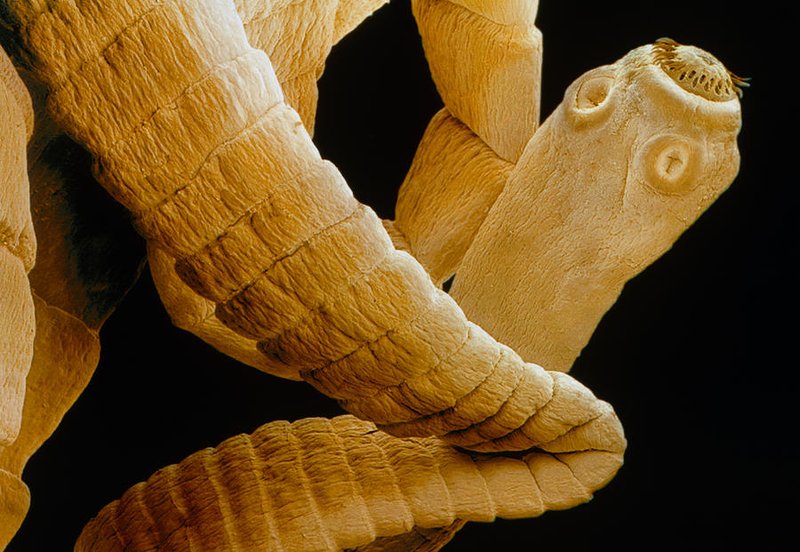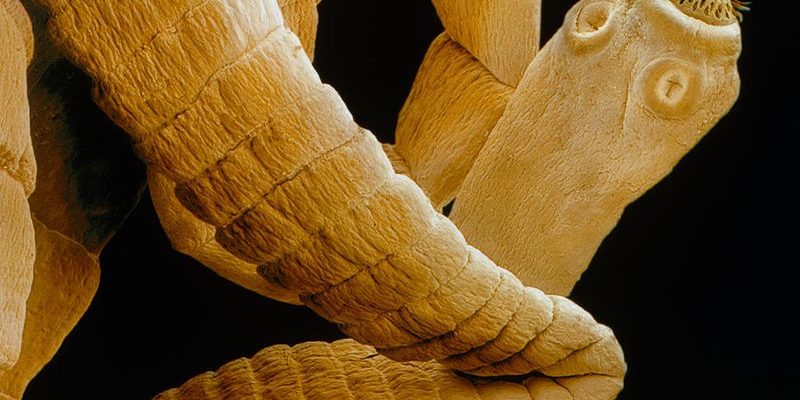
Picture a small lab filled with glass tanks or aquariums bustling with activity. These are places where researchers might raise and observe various species of tapeworms, delving into their life cycles and behaviors. Just like you might raise a fish or a hamster to understand its habits better, scientists can also study tapeworms in captivity, shedding light on their unique ways of life. Let’s dive into this intriguing world and explore whether tapeworms can really be farmed or studied effectively.
Understanding Tapeworms: What Are They?
Tapeworms are a type of flatworm that belong to the class Cestoda. They live in the intestines of various animals, including humans. What sets them apart from other worms is their unique structure—long, flat bodies made up of segments called proglottids. Each proglottid can produce eggs, making these creatures incredibly efficient reproducers.
Their life cycle is fascinating, often involving multiple hosts. For instance, a tapeworm will start as an egg in the feces of an infected host. Once ingested by another animal, it can grow and develop into an adult in the intestines. Because of this complex life cycle, tapeworms are excellent subjects for study, especially in understanding digestive systems and parasitic relationships.
You might be wondering how tapeworms can thrive in such a harsh environment. Well, they possess specialized adaptations that enable them to attach to the intestinal walls using suckers or hooks. This allows them to absorb nutrients directly from their host’s digested food. It’s a little like being a freeloading guest who eats all your snacks without contributing—efficient, but a little annoying!
Challenges of Studying Tapeworms in Captivity
Studying tapeworms in captivity comes with its own set of challenges. One of the primary hurdles is creating the right environment for them to thrive. Tapeworms are highly specialized organisms that require very specific conditions to live and reproduce. This includes the right temperature, humidity, and even the presence of host animals.
In a lab setting, researchers often have to simulate these conditions, which can be tricky. For example, you might need to maintain a population of live hosts (like fish or mammals) to keep the tapeworms alive and healthy. This requires careful planning and ethical considerations, as well as a clear understanding of how to manage both the hosts and the parasites safely.
Additionally, tapeworms are not the easiest creatures to cultivate. They can be sensitive to changes in their environment, and stress can affect their growth and reproduction. Researchers often find themselves needing to adapt their methods based on the species they’re working with, making it a constant learning experience.
Can Tapeworms Be Farmed?
The idea of farming tapeworms might sound bizarre, but it’s not entirely out of the question. In some scientific and medical contexts, tapeworms are cultivated to better understand their biology and to explore potential uses in medicine. For instance, certain types of tapeworms have been studied for their potential role in treating autoimmune diseases.
However, farming tapeworms poses significant ethical and logistical challenges. Unlike traditional farming, which involves raising animals for food or resources, tapeworm farming would likely focus on research purposes. The goal is to gain insights into their life cycle, biology, and potential applications in medicine—but this can be a balancing act. How do we ensure that the tapeworms are treated humanely while also conducting thorough research?
Moreover, as tapeworms have complex life cycles, farming them would mean managing multiple species and their hosts. It’s not just about raising the tapeworms themselves; it’s about creating a sustainable environment for all organisms involved. This makes large-scale farming efforts quite complicated compared to, say, growing crops or raising livestock.
The Benefits of Studying Tapeworms
Despite the challenges, studying tapeworms in captivity offers valuable insights that extend beyond understanding these parasites themselves. Researchers can explore their potential benefits, which include using them to study disease processes in humans and animals.
For example, studying how tapeworms interact with their hosts can shed light on the immune response. Some studies suggest that exposure to tapeworms could help modulate immune function in certain diseases. It’s a bit like finding a silver lining in a cloudy situation—something that’s often seen as a nuisance might actually hold the key to medical breakthroughs.
Additionally, tapeworms serve as important indicators of ecosystem health. By studying their populations and behavior in controlled environments, scientists can gather data that reflects the overall well-being of their hosts and the environment in which they live. If tapeworms thrive, it could indicate a balanced ecosystem; if they decline, it might signal ecological issues.
Ethical Considerations in Tapeworm Research
When it comes to studying or farming any living organism, ethical considerations are paramount. Tapeworms, much like any living creature, deserve respect and humane treatment. This responsibility is especially crucial for researchers, as they navigate the fine line between scientific discovery and ethical research practices.
In conducting studies, scientists must ensure that tapeworms are not subjected to unnecessary suffering or stress. This means closely monitoring their health and well-being and providing optimal living conditions. Whether they’re used in medical research or ecological studies, the welfare of these creatures should always come first.
Furthermore, understanding the impact of tapeworm farming on biodiversity is essential. Introducing or cultivating tapeworms in unnatural environments can lead to unintended consequences. Researchers need to be cautious and perform thorough risk assessments before diving into tapeworm farming practices.
Final Thoughts
Studying tapeworms in captivity is a fascinating endeavor full of challenges and opportunities. These creatures, often viewed as mere parasites, hold secrets about biology, ecosystem health, and even potential medical discoveries. While farming them poses significant hurdles—ethical, logistical, and environmental—the rewards of understanding their complex lives can have profound implications.
If you think about it, tapeworms are a bit like the misunderstood underdogs of the animal kingdom; they’re not the cuddliest critters, but they have a wealth of knowledge to share. So, next time you think about tapeworms, remember that there’s a whole world of research and discovery waiting to be explored—and maybe, just maybe, a place for them in scientific progress.

